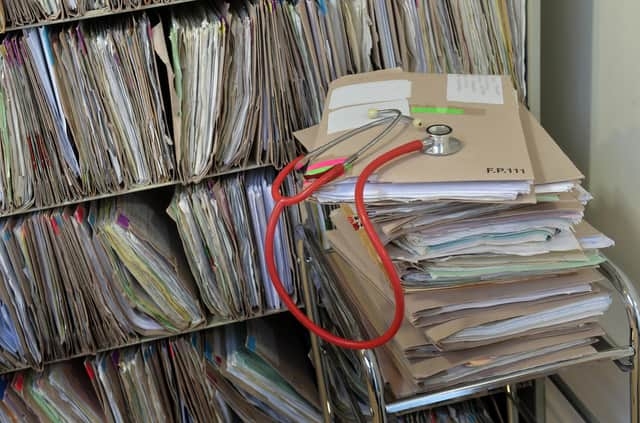GP practices in Buckinghamshire where most patients face long waits


The GP practices in Buckinghamshire where patients are most likely to wait longer than two weeks for an appointment have been uncovered.
The Government said the new data published by NHS Digital – which gives detailed information on appointments and waiting times for GP practices across England – will help patients "make a more informed choice about the practice they choose to visit".
Advertisement
Advertisement
The move has been criticised by the Royal College of GPs for the lack of context around how practices operate.
In total, 272,684 appointments took place at practices in the former NHS Buckinghamshire CCG area in October.
At least 47,031 (17%) took place more than a fortnight after being booked, and 10,804 (4%) saw patients wait longer than 28 days.
In Buckinghamshire, the practices with the highest proportion of appointments occurring after a fortnight were:
Advertisement
Advertisement
Highfield Surgery – 37% of 3,466 appointments took place more than two weeks after they had been booked The John Hampden Surgery – 35.6% of 3,052 The Misbourne Surgery – 32.4% of 5,081 Gladstone Road Surgery – 31.5% of 2,765 Desborough Surgery – 30.3% of 5,255
At the other end of the scale:
Stokenchurch Medical Centre – just 3.5% of 5,759
Chiltern House Med Centre – 3.9% of 2,846
Threeways Surgery – 4.1% of 3,383
Iver Medical Centre – 6.4% of 3,927
Cherrymead Surgery – 6.6% of 7,024
NHS Digital cautioned that workloads can be affected by several factors including: the demographic of patients, how deprived the area is and the number of care homes the practice serves.
The figures come as part of the Government's "plan for patients", which includes a new ambition for every patient to get an appointment at their practice within two weeks.
However, the RCGP said the Government should address the root cause of GP pressures – including recruitment and retention of doctors – "instead of lumbering a struggling service with new expectations".
Advertisement
Advertisement
Chair Professor Kamila Hawthorne said: "A record 36.1 million consultations were delivered in October, almost 40% of these on the day they were booked and more than 71% delivered in-person, the highest proportion since before the pandemic."
Prof Hawthorne said GP workloads have escalated while the number of fully qualified full-time equivalent GPs has fallen by 719 across England since 2019.
"GP teams are just as frustrated as patients when they don’t have the resources and time to deliver the high standard of care to patients they want to, and in some areas where the pressures are even greater, this is happening more," she added.
Meanwhile, Rachel Power, Patients Association chief executive, said primary care should engage with patients and find out their priorities, such as whether face-to-face appointments are a priority for them.
Advertisement
Advertisement
This week, the Government set out plans to overhaul NHS pension rules in an attempt to retain more senior doctors.
Launching an eight-week consultation, ministers said the proposed changes would also remove barriers to retired clinicians returning to work – including new “flexibilities” to allow retired and partially retired staff to return without having payments to their pension reduced or suspended.
Health secretary Steve Barclay said the proposed changes "will help open up extra appointments so patients can see their GP and consultants more quickly".